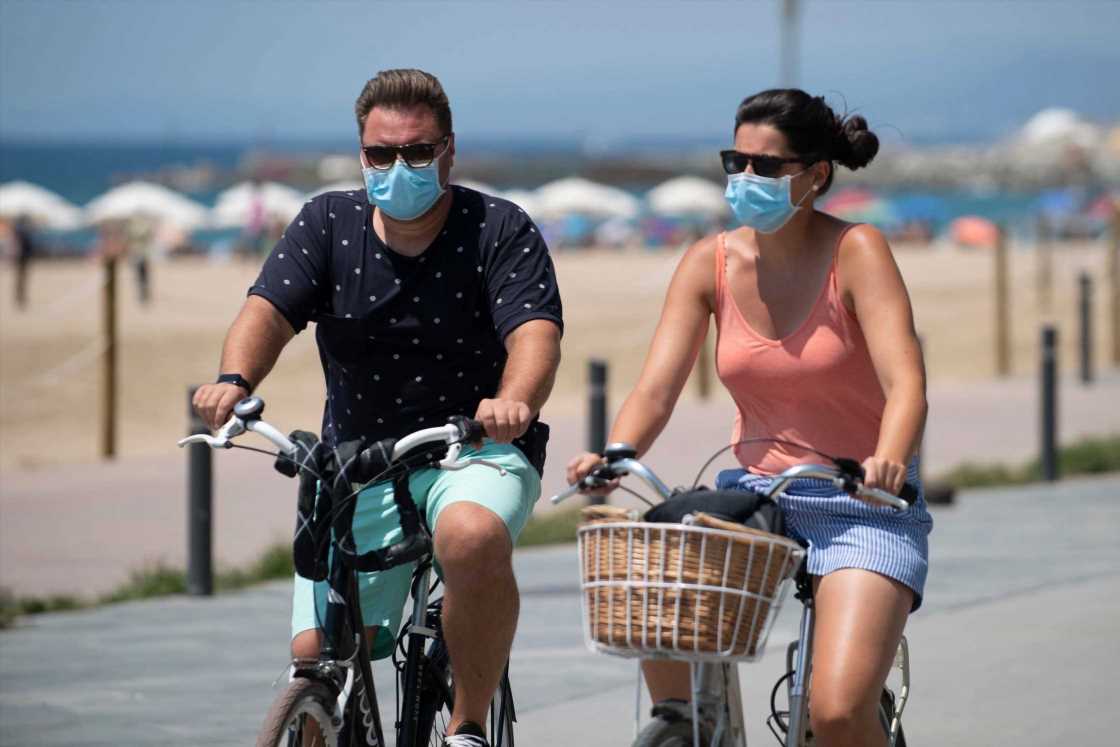COVID cases are still high, meaning millions of Brits are falling unwell every week.
The Omicron variant is much more mild, but one of its most common symptoms is fatigue.
Fatigue is different to being tired. It’s a full-body feeling of weakness and desire to lie down and take a break.
It can mentally exhaust you too, making it harder to stay motivated or do anything other than slob on the sofa.
Dr Natasha Yates, the deputy lead of General Practice at Bond University, Australia, says fatigue can stick around for a while after Covid infection.
Fatigue is very common after viral infections, and can linger for up to three weeks.
And for some unlucky people, it won’t shift for months and becomes long Covid.
The Office for National Statistics (ONS) defines long Covid as symptoms lasting more than for weeks after initial infection.
Fatigue is the most common problem reported by long Covid sufferers, experienced by 51 per cent, according to the ONS.
The NHS says on its webpage Your Covid Recovery: “In some people, different things contribute to the fatigue and make it last a long time.
Most read in Health
BUG BEARWarning to everyone who caught Omicron at Christmas over new Covid risk
Parents warned to check for hepatitis signs after mystery spike in children
Warning to anyone who's had Covid in last 6 months over new deadly side-effect
My body caught FIRE in surgery – my scorched insides took a year to heal
“Low levels of physical activity, a disturbed daily routine, poor sleep patterns, demanding work, caring responsibilities, low mood, anxiety and stress can all make fatigue worse.”
Dr Yates said: “The evidence for what helps you recover from post-COVID fatigue is in its infancy.
“However, a few things do help.”
Read on to find out her tips, written in a piece for The Conversation.
1. Pace yourself
After Covid you might imagine that you’ll bounce back and go back to your normal routine.
But unfortunately, this isn’t always the case.
Dr Yates said: “Adjust the return to normal activities to your energy levels.
“Choose your priorities and focus on what you can do rather than what you can’t.”
2. Return to exercise gradually
You may be eager to hit the gym after a week or so cooped up with the virus.
But don’t go full steam ahead if you don’t feel physically yourself yet.
And ask for help if you find that your energy levels don’t return to normal for weeks.
Dr Yates said: “A gradual return to exercise may help your recovery, but you may need some support about how to manage or avoid fatigue afterwards.
“Some therapists – occupational therapists, physiotherapists and exercise physiologists – specialise in this. So ask your GP for a recommendation.”
3. Sleep well
If you haven’t already, prioritise your sleep – because this is where the healing magic happens.
Dr Yates said: “Rather than feeling guilty about sleeping so much, remind yourself that while you sleep, your body conserves energy and heals.
“Disrupted sleep patterns are an unfortunate Covid symptom.
“Having a strict bedtime, while also resting when you feel tired during the day, is important.”
The NHS says relaxation techniques can help with fatigue as they promote a good sleep pattern, and can help reduce stress.
“Consider trying techniques such as mindful meditation, aromatherapy, yoga, tai chi, and other activities you find relaxing, such as reading or having a long shower or bath,” it says.
4. Clean up your diet
Eating a diet that weighs you down is never going to help with fatigue.
“Try to view food as a way of fuelling your body with both energy and the micronutrients it needs to heal,” Dr Yates said.
She warned against falling into the trap of unproven remedies based on nutrition.
The NHS says to eat (per day); three palm-sized portions of protein, three thumb-sizd portions of dairy and five portions of fruit and veg.
Aim for a quarter of main meals to include starchy foods, such as rice, potatoes or pasta.
Have plenty of fruit and veg and keep hydrated.
5. Fatigue diary
Dr Yates said: “Keep a diary to monitor your fatigue, and look for a gradual improvement.
“You will have good days and bad days, but overall there should be a slow trajectory towards recovery.
“If you are going backwards, get input from a health professional, such as your GP.”
The NHS also says to “keep a record of what you have done during the day and how you feel after each activity”.
“Activities can be physical, social, cognitive (thinking), or emotional, and some can be more tiring than others,” it says.
“Diaries can help you spot unhelpful activity patterns, such as irregular sleep patterns and ‘boom and bust’ behaviours – where you are very active on ‘good’ days and then feel exhausted the following day.”
The NHS also advises to plan, prioritise and delegate, so that you can manage your fatigue and improve it, rather than worsening it.
For example, if you find you have more energy at the weekend and less in the week, try and do all your cooking at the weekend.
Read More on The Sun
Newlywed dad dead and bride fighting for life weeks after they tied the knot
Simon Thomas says wife Derrina ‘struggles with guilt’ over 1st wife’s death
Prioritise the tasks that are important to you, and try to delegate tasks to others around you.
Make little changes where you can, for example switching to an online food shop, rather than going to the supermarket, or car-sharing the school run, so you don’t have to do it every day.
Source: Read Full Article









